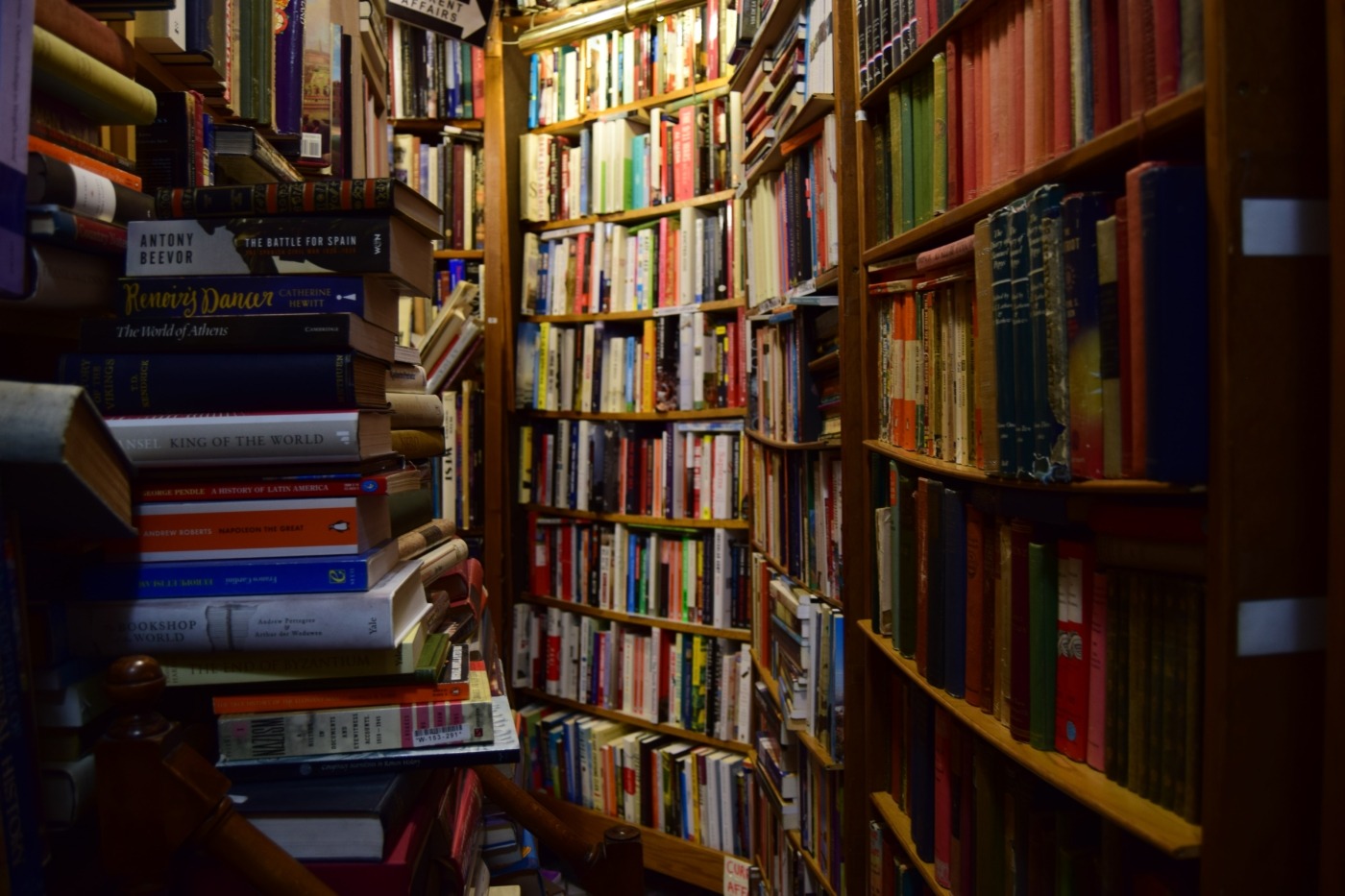What does the sale of Blackwell’s mean for independent bookshops?
On my visit to Oxford last year, I was quickly charmed by the city’s quaint beauty. In a similar way to many other visitors, I initially came to see the university but was pleasantly surprised by the other things it has to offer, from the dreamy architecture to the abundance of Harry Potter merchandise. In my stroll through the cobbled streets, there was a recurring emblem on nearly every corner that I couldn’t help but notice—a Blackwell’s Oxford tote bag. As a lover of books (and a hoarder of tote bags), I couldn’t resist searching up Blackwell’s on Google Maps for a visit.
The flagship store on Broad Street opened in 1879 and to this day still maintains its antique style, evoking a sense of timelessness, allowing you to freely roam through the shelves and immerse yourself in the world of literature. There’s even a separate music section offering vinyl and sheet music but perhaps the most impressive aspect of the store is the Norrington Room, a massive basement of over 250,000 books, even appearing on Guinness World Records for being the largest single room to sell books.
You can imagine my dismay when the recent news came out that Blackwell’s has been put up for sale and will for the first time in its 143 history fall out of family ownership. I’m sure I am not the only one to feel this loss. Blackwell’s is the largest independent bookstore in the UK, with 30 stores in existence and is a familiar presence in many university towns. There were plans for the ownership of the chain to be handed over to employees, however there were complications and uncertainties due to the ongoing pandemic.
What does this mean for them if they can’t compete with the rise of bigger companies like Amazon and Waterstones who offer faster and cheaper shipping, and more impressive catalogs?
The future of Blackwell’s lies in the hands of the potential buyers, including Waterstones, the UK’s leading book retailer. Waterstones is owned by the New York hedge fund Elliott Advisors, and is the parent of other smaller chains such as Foyles, Hatchards, Dillons, and Ottakar’s.
Julian Blackwell, the president of the company said: “I would have loved to have handed over the company to its staff, but I also accept that in order to grow and remain competitive in the future, it is time for new ownership, ideas and investment.”
The chief executive of Blackwell’s, David Prescott, added: “The sale of Blackwell’s represents a genuinely unique and exciting opportunity for any potential buyer to own a much loved and trusted bookselling brand. The business has been quietly and successfully transitioning itself in recent years to establish a substantial global online presence alongside a core portfolio of iconic shops. We hope that a new owner and investment will help us to secure a long-term future for Blackwell’s and its booksellers for many years to come.”
It seems that there is a positive outlook towards this new chapter, with particular emphasis on the growth of the company in the online market. However, this alludes to the shift in the bookselling industry towards online commerce and away from in-person stores. Other readers can share my worries for the future of other independents. What does this mean for them if they can’t compete with the rise of bigger companies like Amazon and Waterstones who offer faster and cheaper shipping, and more impressive catalogs? It’s not uncommon for independent stores to be sold off, but booklovers can share a worry as local bookshops possess an individuality and whimsicality that can easily be ironed out.
What’s even more special about independent bookstores is the personalized experience that you get as a customer, and this cannot always be ensured if the store is owned by a larger corporation
Author Matt Haid once said: “Independent real-world bookshops are essential beacons of joy and imagination and culture in our town centres, and also create a more dynamic, meritocratic and inherently human book world, away from the supermarkets and soulless online algorithms. Just as a town without a bookshop isn’t truly a town, a world without independent, informed, passionate booksellers and bookshops would be a flatter, emptier, sadder world.”
There is hope that whatever happens, Blackwell’s will be able to maintain its authentic bookselling. Bookstores offer a personalized experience that cannot be replicated through a website. Sure, there’s pleasure in opening a package but at least for me, the value in buying books is the ability to enter a store and be greeted by endless rows of colorful spines. What’s even more special about independent bookstores is the personalized experience that you get as a customer, and this cannot always be ensured if the store is owned by a larger corporation.
There’s no doubt that the book industry is transforming. The future seems to include the predominant role of online retailers. The fate of other independent bookstores are left for book buyers to decide but I have hope that they will choose integrity.

Comments